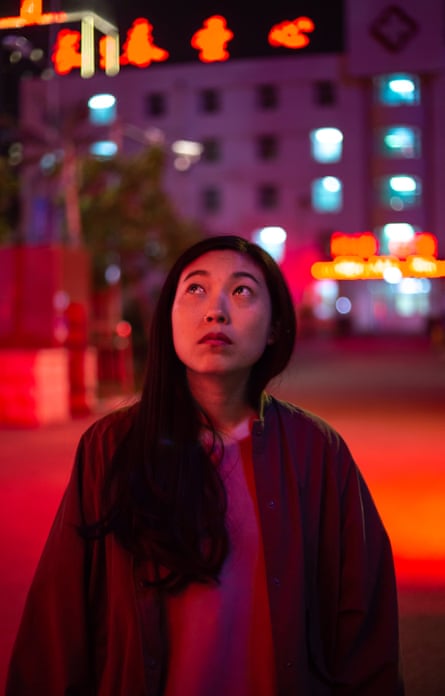T
The allure of the fantasy tends to arise during times of unease. In tales of immigration, yearning and sorrow, the notion of going back to one’s homeland can be alluring like the call of a siren. It becomes a place that promises to alleviate all discomforts and bring you back to your true self. The fantasy tantalizes that once you reach it, you will feel whole and have finally found your home.
The main characters in Past Lives, a highly anticipated romantic movie written by South Korean-Canadian playwright Celine Song, find the concept of a prodigal return not in a specific location, but in their relationship with each other. Nora Moon and Hae Sung are 12-year-old classmates and friends in Seoul. Nora is a high achiever and easily brought to tears, which happens when Hae Sung outperforms her on an exam. He questions why she is upset, as she typically does better than him.
Nora’s parents are planning a move to Toronto, and her mother wants to create special memories for her daughter in Korea before they leave. She asks Nora if she has any romantic interests, and Nora mentions Hae Sung. They have a playdate before Nora’s departure. Twelve years later, Nora is a successful playwright in New York while Hae Sung is studying engineering and living with his parents in Korea. They reconnect through Facebook and start communicating through Skype. Through their conversations, it seems as though their physical lives are overshadowed by the allure of each other on screen. The outside world is only glimpsed through their windows; Seoul in the hazy afternoon and New York aglow at night.

Over the past few years, there has been a surge in movies from the Asian diaspora. These films showcase diverse stories and styles that represent the various communities within this large umbrella term. While each story is unique, there are common themes that can be observed. One recurring theme is a character returning to their country of birth, navigating the joys and challenges of being part of two cultures. For example, in 2018’s box office hit Crazy Rich Asians, a Chinese-American woman visits Singapore with her Singaporean boyfriend to meet his family. In The Farewell by Lulu Wang, New Yorker Billi travels to China to visit her ill grandmother. Davy Chou’s Return to Seoul follows French woman Freddie as she reconnects with her birth parents in South Korea. This summer’s comedy Joy Ride follows an American adoptee on a journey across China in search of her birth mother.
The characters in these films are typically young and have grown up in the western world, unlike their parents. As a result, they often have idealized and unrealistic views about their birth countries. These films are now starting to play with these ideas, toying with the idea of a reunion that will bring complete fulfillment only to ultimately subvert it. The birth parents are either hesitant or completely absent, leaving the characters to grapple with new identity complexities rather than finding a sense of home. In some cases, the sense of purpose can be ironically twisted, as seen in Freddie’s story in Return to Seoul where she ends up working in the missile industry for South Korea. During a family lunch in Seoul, she shocks her loved ones by declaring that it is her destiny to protect her birthplace.
Though Past Lives is less overtly concerned with family and identity, the stories of Nora and Hae Sung reveal another much used conceit of the fantasy of the prodigal return: that the person who leaves is the one filled with motion, the real possessor of plot, while those left behind remain static, lying in wait to issue a welcome. When a young Nora announces to her classmates that she is leaving to pursue her ambition of winning the Nobel prize for literature, no South Koreans have won it. The camera moves to show Hae Sung, looking hurt and withdrawn.

A popular image promoting the film shows the two characters reuniting in New York after 12 years since their (unsuccessful) Skype relationship. This image suggests a different storyline. They are sitting next to each other, facing each other, occupying equal space in the frame, hinting at a future where their stories hold equal significance. However, the film still leans towards Nora – we primarily hear her thoughts on the reunion and her life and aspirations are portrayed in detail. As we witness Hae Sung’s evolution over time and his conflicts with Nora’s self-perception, it becomes evident that believing in a reunion with an unchanging and comforting past is foolish.
Perhaps this is why watching movies that present the other perspective, about those who are left behind, can provide a compelling journey through a new lens. Mountains May Depart, a 2015 film by Chinese filmmaker Jia Zhangke, follows a couple navigating the social and economic shifts in China during the 1990s. In the final third of the film, it jumps to 2024, where the couple has separated and the father has relocated to Australia with their son, now a college student struggling with his Mandarin. It was unusual to witness a migration story without grandeur; it was humbling to see an experience typically seen as personally defining and unique woven into a larger narrative spanning multiple generations.
Once again, certain themes continue to exist. The mother of the child remains in China and has been separated from her son for several years. The end of the film hints at a possible reunion between mother and child – the child is shown boarding a plane – but chooses not to show it. Instead, we see the mother in her new home, humming as she gazes longingly at the horizon, listening to the same song that she danced to 25 years ago as a young shop girl. In the years since, she has lived many different lives.
Source: theguardian.com



















